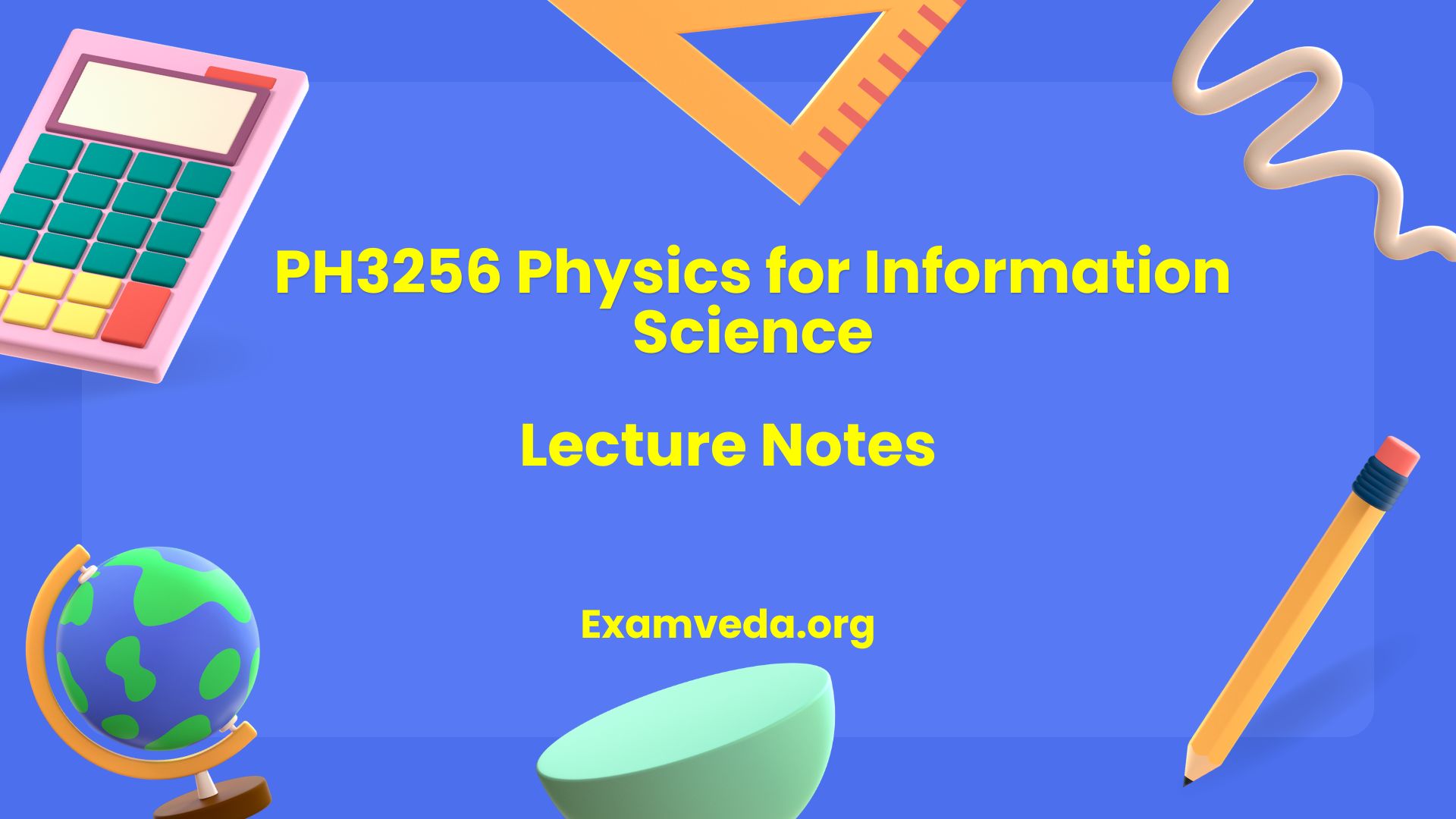PH3256 Physics for Information Science Notes
Download PH3256 Physics for Information Science Books, Lecture Notes, Part-A 2 marks with answers, Part-B 16 marks Questions, PDF Books. In this Notes Very Useful for First Year Second Semester Students.
“PH3256 Physics for Information Science Books”
“PH3256 Physics for Information Science Lecture Notes”
“PH3256 Physics for Information Science Study Material”
“PH3256 Physics for Information Science Notes”
Subject Info:
| Semester | Second Semester |
| Department | CSE |
| Year | First Year |
| Regulation | R 2021 |
| Subject Code / Name | PH3256 Physics for Information Science |
| Content | Local Authors Books, Lecture Notes |
Syllabus:
PH3256 Physics for Information Science
UNIT I ELECTRICAL PROPERTIES OF MATERIALS
Classical free electron theory – Expression for electrical conductivity – Thermal conductivity, expression – Wiedemann-Franz law – Success and failures – electrons in metals – Particle in a three dimensional box – degenerate states – Fermi- Dirac statistics – Density of energy states – Electron in periodic potential – Energy bands in solids – tight binding approximation – Electron effective mass – concept of hole.
UNIT II SEMICONDUCTOR PHYSICS
Intrinsic Semiconductors – Energy band diagram – direct and indirect band gap semiconductors – Carrier concentration in intrinsic semiconductors – extrinsic semiconductors – Carrier concentration in N-type & P-type semiconductors – Variation of carrier concentration with temperature – variation of Fermi level with temperature and impurity concentration – Carrier transport in Semiconductor: random motion, drift, mobility and diffusion – Hall effect and devices – Ohmic contacts – Schottky diode.
UNIT III MAGNETIC PROPERTIES OF MATERIALS
Magnetic dipole moment – atomic magnetic moments- magnetic permeability and susceptibility – Magnetic material classification: diamagnetism – paramagnetism – ferromagnetism – antiferromagnetism – ferrimagnetism – Ferromagnetism: origin and exchange interactionsaturation magnetization and Curie temperature – Domain Theory- M versus H behaviour – Hard and soft magnetic materials – examples and uses-– Magnetic principle in computer data storage – Magnetic hard disc (GMR sensor).
UNIT IV OPTICAL PROPERTIES OF MATERIALS
Classification of optical materials – carrier generation and recombination processes – Absorption emission and scattering of light in metals, insulators and semiconductors (concepts only) – photo current in a P-N diode – solar cell – LED – Organic LED – Laser diodes – Optical data storage techniques.
UNIT V NANODEVICES AND QUANTUM COMPUTING
Introduction – quantum confinement – quantum structures: quantum wells, wires and dots –– band gap of nanomaterials. Tunneling – Single electron phenomena: Coulomb blockade – resonan tunneling diode – single electron transistor – quantum cellular automata – Quantum system for information processing – quantum states – classical bits – quantum bits or qubits –CNOT gate – multiple qubits – Bloch sphere – quantum gates – advantage of quantum computing over classical computing.
